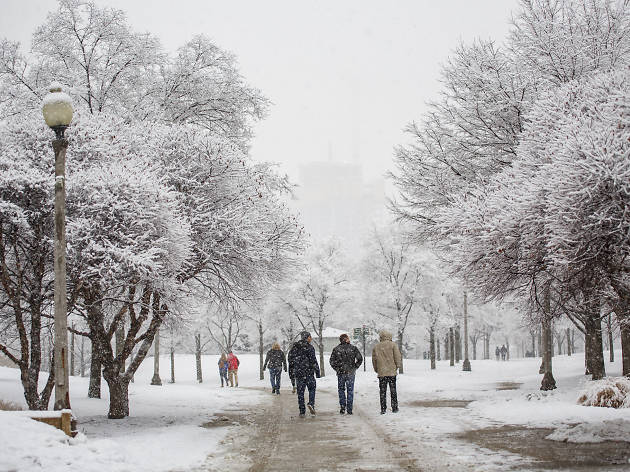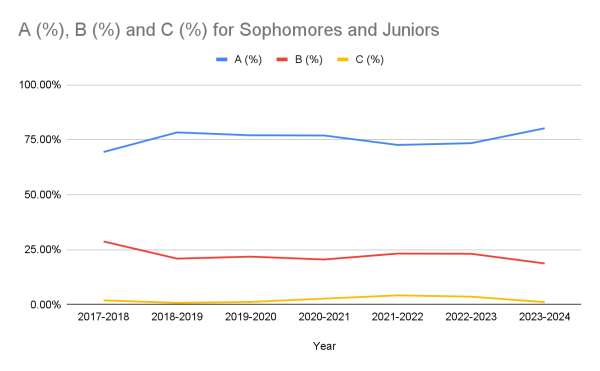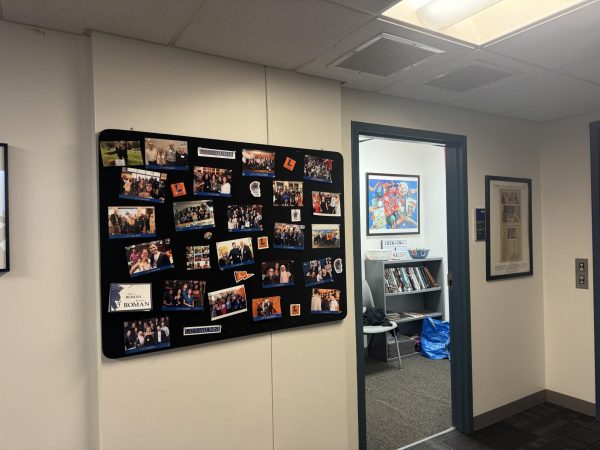Snow Days During COVID-19 – Cancel or Learn Remotely?
Following reports of potentially dangerous winter weather on the evening of January 25, Latin sent an email to families explaining that “in the event of extreme weather, all classes will be cancelled (in person and remote) for all divisions.” Given that Zoom makes at-home learning accessible to students, many assumed that the administration would no longer have snow days. So the school’s announcement was, for many, a welcome surprise that remote learning hasn’t necessarily ruined the tradition of getting an occasional day off because of bad weather. But then on the morning of February 15, the Latin community awoke to the opposite news that Upper School in-person classes would be canceled and school would be held remotely for February 16 due to the impending severe weather.
When asked about how Latin makes the decision to cancel in-person classes, Head of School Randall Dunn said, “Our decisions around snow days are based 100% on safety, because our community members travel from all parts of the city and suburbs, and many rely on public transportation.”
Snow days can be an exciting part of any winter season, so students were optimistic that they would remain a possibility this year. Senior Koren Jurado, who has opted to learn remotely so far this school year, asserted that snow days are a cherished part of high school and should remain. “Snow days were more than a canceled school day,” Koren said. “They gave students and faculty a rest day to appreciate the weather.”
However, it now appears that the January 25 decision to cancel remote learning was only temporary. Prior to the February 16 cancellations, Mr. Dunn explained, “We know that we have effectively developed the capacity to have school remotely during a snow day, so in the future we will very likely use that capacity to benefit our teaching and learning.” This explanation was a foreshadowing of what was to come simply days later for a remote learning snow day.
While Mr. Dunn did not disclose why the school made the initial decision to cancel remote learning during severe weather, it’s difficult for faculty to transition overnight to a completely remote model of learning. Indeed, in several schedule update emails last fall, the administration explained that it would take two to three days to transition fully from one model of learning to another. Teachers would have to scramble on very short notice to adjust their activities for the day, as the administration may notify the community in the early morning hours. Still, when asked if a snow day would impact her long-term goals for her class, Upper School math teacher Nichol Hooker said, “For me, a fully canceled snow day wouldn’t have deterred [my learning plan] any more than COVID already has.”
However, it appears that the forecast for severe weather was definitive for February 16th and the administration knew ahead of time that high snow totals were to come to the city. Because of this, Latin had time to announce the remote model of learning for the following day as opposed to waiting out an unsure forecast in the early morning hours.
Although students are disheartened to know that snow days may no longer exist, some, like senior Sam Szykowny, reluctantly agree with the school’s reasoning. “Ideally, I’d want a snow day because then I wouldn’t have to go to school, but realistically, most students won’t be traveling, so it makes most sense to just continue school remotely,” Sam said.
The future of snow days remains unknown because of the tumultuous school year and the obscure future ahead. With COVID-19 vaccines being distributed across the state, one can only wonder how much longer until the world returns to normal, and with resources like Zoom widely available to schools now, it’s hard to know if snow days will be a part of a post-COVID-19 world.
























































